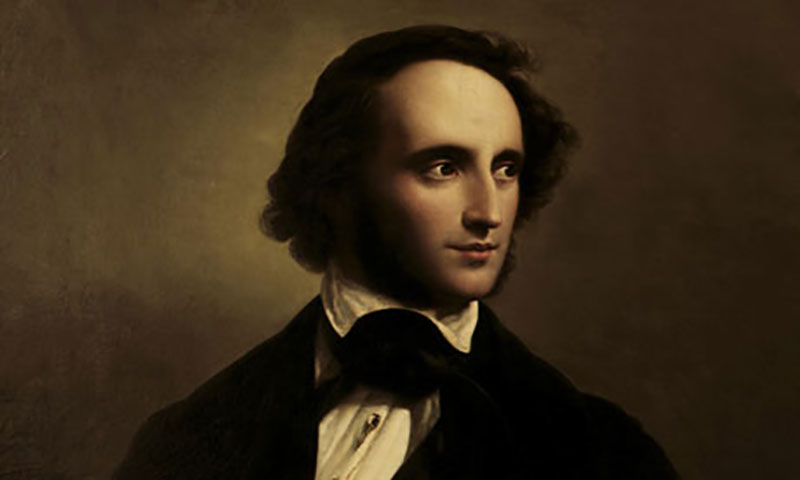Felix Mendelssohn Bartholdy, often referred to simply as Felix Mendelssohn, was a prominent composer, pianist, conductor, and music educator of the Romantic era. Born on February 3, 1809, in Hamburg, Germany, he was blessed with prodigious musical talent from an early age.
Mendelssohn was born into a wealthy and culturally enlightened family. His grandfather was the distinguished Jewish philosopher Moses Mendelssohn, and his father, Abraham Mendelssohn, was a successful banker. Despite his family’s wealth, they faced discrimination due to their Jewish heritage, leading to their conversion to Christianity when Felix was just seven years old. As a result, the family added the name Bartholdy, the surname of a property they owned, to their own.
Mendelssohn displayed exceptional musical abilities from his earliest years. He began piano lessons with his mother at the age of six, and by the age of nine, he was already composing his own music. Recognizing his talent, his parents provided him with the best musical education available, including instruction from renowned teachers such as Carl Friedrich Zelter.
In 1819, Mendelssohn’s family moved to Berlin, where he continued his education and musical development. He quickly became a central figure in Berlin’s vibrant cultural scene, forming friendships with influential artists and intellectuals. At the age of 16, Mendelssohn composed his String Octet in E-flat major, a work of remarkable maturity and brilliance that demonstrated his mastery of composition.
In 1829, Mendelssohn embarked on a tour of Europe, during which he visited England, Scotland, and Italy. His visit to Scotland inspired him to compose one of his most famous works, the Hebrides Overture (also known as “Fingal’s Cave”), which vividly captures the rugged beauty of the Scottish landscape.
Throughout his life, Mendelssohn was a prolific composer in a wide variety of genres, including symphonies, concertos, chamber music, choral works, and operas. He was also a highly skilled pianist and conductor, leading performances of both his own works and those of other composers.
In addition to his composing and performing career, Mendelssohn was a dedicated music educator. He served as the director of the Leipzig Conservatory, where he made significant contributions to music pedagogy and trained a new generation of musicians.
Despite his immense talent and success during his lifetime, Mendelssohn struggled with his health, suffering from various ailments throughout his life. Tragically, he died on November 4, 1847, at the age of 38, following a series of strokes.
Mendelssohn’s music fell out of favor in the years following his death but experienced a resurgence of popularity in the late 19th century. Today, he is recognized as one of the greatest composers of the Romantic era, admired for his melodic inventiveness, harmonic richness, and emotional depth. His works continue to be performed and cherished by musicians and audiences around the world, ensuring his enduring legacy in the history of classical music.


Comments are closed